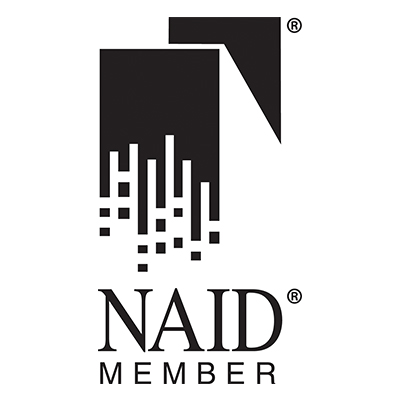Providing information on a patient’s care to other healthcare professionals is an important reason to retain medical records. Another critical consideration is the need for well-documented records to provide support in the event of medical malpractice litigation. You will want to keep records which relate to any civil, criminal, or administrative proceeding if the litigation has not been resolved. Without the medical record, a physician may not prove the appropriate standard of care was met.
While some healthcare providers have adopted a digital records management system, many still use hard-copy medical records to document the medical histories of patients. A busy or well-established practice or healthcare facility will eventually face an issue of storage space for these histories. It is useful for healthcare providers with hard-copy medical records to create a record retention schedule in order to remain compliant with state and federal laws like HIPAA.
How long should a physician or healthcare practice retain a medical record? A number of factors can influence medical record retention. State and federal laws, medical board and association policies, and the type of record are all determining factors in how long a record is held.
Medical offices should maintain documentation of the destruction of health records, including the following:
• Date of destruction
• Method of destruction
• Description of the disposed of records
• Inclusive dates
• A statement which declares the records were destroyed in the normal course of business
• The signatures of the individuals supervising and witnessing the destruction
In order to securely dispose of medical records, many healthcare providers have turned to professional shredding services for assistance. Medical record shredding ensures a documented and secure chain of custody and compliance with HIPAA and other medical record destruction regulations.

Secure records destruction
According to the Department of Health and Human Services, a “properly destroyed” medical record is specifically defined as a medical record “rendered essentially unreadable, indecipherable, and which otherwise cannot be reconstructed.”
The following are the eighteen information types protected under HIPAA and formally defined as PHI (Protected Health Information):
• Account Numbers
• Biometric Identifiers (fingerprints, retinal scan, etc.)
• Certificate / License Numbers
• Device Identifiers and Serial Numbers
• Dates
• Email Addresses
• Fax Numbers
• Full Face Photos and Comparable Images
• Geographic Data
• Internet Protocol Addresses
• Health Plan Beneficiary Numbers
• Medical Record Numbers
• Names
• Social Security Numbers
• Telephone Numbers
• Vehicle Identifiers and Serial Numbers, Including License Plates
• Web URLs
• Unique Identifying Numbers, Characteristics, or Codes
Ensure you have proper medical record disposal processes in place to safeguard yourself and your patients from unnecessary risks by calling Sierra Shred today. With the rise in data breaches and identity theft in recent years, protecting your patients’ medical records and confidential information is imperative. Sierra Shred is your trusted partner in proper document destruction and information security.
WHICH SIERRA SHRED SERVICES BENEFIT MEDICAL PROFESSIONALS?

Secure data destruction
• On-Going Recurring Shredding – locked container on-site for regularly scheduled service
• One-Time Purge Shredding – on an as-needed basis for small and large disposals
• Hard Drive Destruction – secure process makes data from old computers completely irrecoverable
• Media & E-Recycling – safely discard computer peripherals and electronics
Contact Sierra Shred for more information on our secure information disposal services for your practice: Call 855-747-3372 or click GET A FREE QUOTE!


